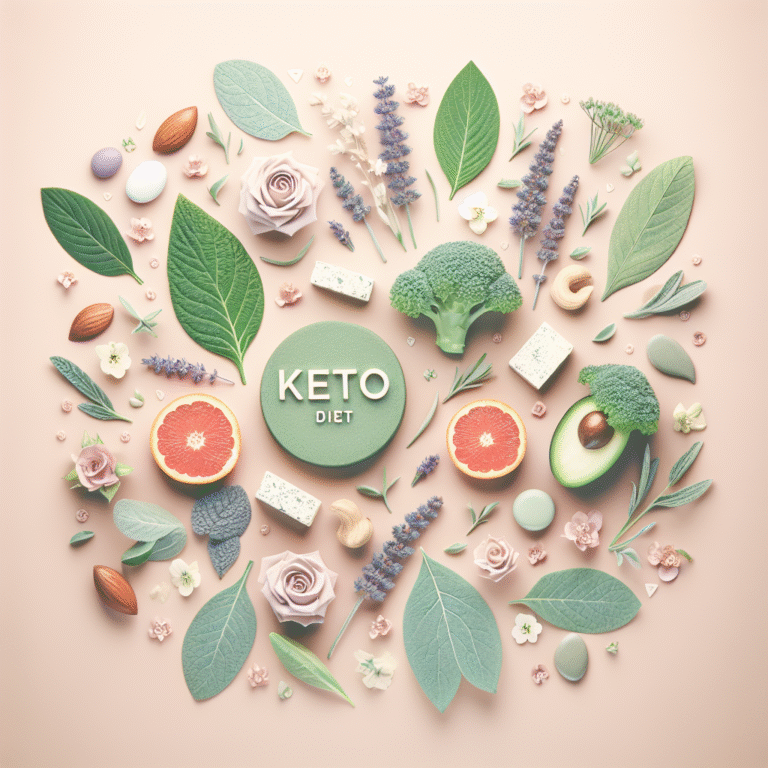Unveiling the Secret Health Benefits of Cinnamon

Cinnamon, a beloved spice found in many kitchens worldwide, has been treasured not only for its warm, sweet flavor but also for its medicinal properties. Dating back to ancient civilizations, cinnamon was once more valuable than gold, used in traditional medicine systems such as Ayurveda and Traditional Chinese Medicine. In modern times, scientific research has begun to catch up with ancient wisdom, unveiling a range of health benefits that cinnamon offers.
The Nutritional Profile of Cinnamon

Before diving into the specific health benefits, it’s essential to understand the nutritional makeup of cinnamon. There are two main types of cinnamon: Ceylon, also known as “true cinnamon,” and Cassia, which is more commonly found in supermarkets. Both types contain essential components such as cinnamaldehyde, cinnamic acid, and cinnamate, which are responsible for cinnamon’s health-enhancing qualities.
Key Nutrients in Cinnamon
- Antioxidants: Cinnamon is packed with powerful antioxidants, including polyphenols, which help protect the body from oxidative stress.
- Fibers: Although consumed in small quantities, cinnamon provides dietary fiber, contributing to digestive health.
- Vitamins and Minerals: Contains trace amounts of calcium, iron, and vitamin K.
Health Benefits of Cinnamon
1. Anti-Inflammatory Properties
Chronic inflammation is a silent contributor to many diseases, including heart disease and cancer. Cinnamon’s anti-inflammatory properties can help reduce the risk and impact of these conditions. Cinnamaldehyde, the essential oil in cinnamon, plays a significant role in reducing inflammation.
Real-Life Application
Incorporating cinnamon into your daily diet can be a simple yet effective strategy for combating inflammation. For example, adding a teaspoon to your morning oatmeal or smoothie can provide a daily dose of anti-inflammatory compounds. Additionally, cinnamon tea, enjoyed hot or iced, can be a soothing way to integrate this spice into your routine.
2. Antioxidant Powerhouse
Cinnamon’s high antioxidant content helps neutralize free radicals, which can damage cells and lead to chronic diseases. A study published in the Journal of Agricultural and Food Chemistry ranked cinnamon higher in antioxidant activity compared to other spices like oregano and garlic.
Real-Life Application
To harness the antioxidant power of cinnamon, consider making a cinnamon-infused honey. This can be done by mixing a teaspoon of ground cinnamon with a tablespoon of honey, which can be drizzled over yogurt, toast, or fruit for a flavorful, health-boosting snack.
3. Blood Sugar Control
One of the most extensively researched benefits of cinnamon is its ability to lower blood sugar levels. Cinnamon has been shown to improve insulin sensitivity, making it a potentially beneficial addition for those managing Type 2 diabetes. For instance, a study in Diabetes Care demonstrated that participants who consumed cinnamon daily saw a significant decrease in fasting blood sugar levels.
Personal Story
Consider the case of Sarah, a 45-year-old woman diagnosed with Type 2 diabetes. Despite following conventional treatments, Sarah struggled to maintain her blood sugar levels within the recommended range. After consulting with her healthcare provider, she began incorporating cinnamon supplements into her diet. Over three months, Sarah’s fasting blood sugar levels decreased by 15%, and her HbA1c levels improved significantly. This case highlights cinnamon’s potential as a complementary approach to traditional diabetes management strategies.
4. Heart Health
Cinnamon may improve heart health by reducing risk factors such as high cholesterol and triglyceride levels. Research indicates that cinnamon can help lower LDL cholesterol (the “bad” cholesterol) and raise HDL cholesterol (the “good” cholesterol), thus supporting cardiovascular health.
Real-Life Application
For those looking to support heart health, cinnamon can be incorporated into a heart-healthy diet in several ways. Sprinkling cinnamon on whole grain toast or adding it to plant-based milk can be beneficial. Moreover, incorporating cinnamon into marinades for lean proteins or vegetables can add flavor while promoting cardiovascular well-being.
5. Neuroprotective Effects
Emerging evidence suggests that cinnamon may have neuroprotective effects, making it a potential tool in preventing neurodegenerative diseases like Alzheimer’s and Parkinson’s. Cinnamon’s ability to inhibit the buildup of tau protein tangles, a hallmark of Alzheimer’s disease, is particularly noteworthy.
Scientific Insight
Research conducted at the University of California, Santa Barbara, found that cinnamon extract can help prevent the aggregation of tau proteins. This suggests a potential protective effect against Alzheimer’s disease. Although more research is needed to fully understand these effects in humans, preliminary findings are promising and highlight cinnamon’s potential role in brain health.
Cinnamon vs. Other Spices: A Comparative Analysis

| Feature | Cinnamon | Turmeric | Ginger |
|---|---|---|---|
| Primary Active Compound | Cinnamaldehyde | Curcumin | Gingerol |
| Main Health Benefit | Blood Sugar Control | Anti-Inflammatory | Digestive Health |
| Antioxidant Level | High | Moderate | High |
| Common Use | Sweet and Savory Dishes | Curries and Teas | Teas and Confections |
Understanding the Differences
While cinnamon excels in blood sugar management and antioxidant capacity, turmeric is renowned for its anti-inflammatory properties, and ginger is celebrated for aiding digestion. Each spice brings unique benefits to the table, and a diverse spice cabinet can enhance both flavor and wellness.
Actionable Tips for Including Cinnamon in Your Diet
1. Morning Boost: Add a pinch of cinnamon to your morning coffee or tea for an antioxidant kick.
2. Baking Enhancer: Use cinnamon in homemade baked goods such as muffins or bread for added flavor and health benefits.
3. Savory Dishes: Incorporate cinnamon into savory dishes like stews or curries to enhance flavor complexity.
4. Smoothie Addition: Blend cinnamon into your favorite smoothie for a nutrient boost.
5. Supplement Form: Consider cinnamon supplements as a convenient way to ensure a consistent intake.
Creative Culinary Uses
Beyond traditional uses, cinnamon can be a star ingredient in innovative dishes. Try a cinnamon-spiced quinoa salad with nuts and dried fruits, or use cinnamon in a spicy rub for meats. These creative applications can help you enjoy the health benefits of cinnamon in diverse and delicious ways.
Frequently Asked Questions About Cinnamon
1. Is it safe to consume cinnamon daily?
Yes, in moderate amounts, cinnamon is safe for most people. However, excessive consumption, particularly of the Cassia variety, can lead to health issues due to high coumarin content.
2. Can cinnamon help with weight loss?
While cinnamon may help regulate blood sugar and reduce cravings, it should not be relied upon as a primary weight loss tool. It is best used as part of a balanced diet and healthy lifestyle.
3. How do I choose between Ceylon and Cassia cinnamon?
Ceylon is often referred to as “true cinnamon” and has a more delicate flavor with lower coumarin levels. It is generally preferred for health purposes.
4. Can cinnamon interact with medications?
Cinnamon may interact with certain medications, such as anticoagulants or diabetes medications. It is essential to consult with a healthcare provider before adding cinnamon supplements, especially if you are on medication.
5. What is the recommended daily intake of cinnamon?
For most adults, the recommended intake is about 1-2 teaspoons of ground cinnamon per day. However, this can vary based on individual health conditions and dietary needs.

6. Are there any cultural uses of cinnamon worth noting?
Cinnamon has been integral to various cultural cuisines and traditional medicines. In Middle Eastern cuisine, it is often used in savory dishes like tagines, while in Indian cooking, it is a staple in spice blends like garam masala. Exploring these cultural uses can provide new ways to enjoy cinnamon.
Conclusion
Cinnamon, a spice with a rich historical background, offers a surprising array of health benefits. From regulating blood sugar to providing antioxidant protection, its potential uses in health and wellness are vast. While it is not a cure-all, cinnamon can be a valuable addition to a balanced diet and healthy lifestyle. As always, it is wise to consult with healthcare professionals when considering significant dietary changes, especially for those with existing health conditions.
By understanding and leveraging the myriad benefits of cinnamon, individuals can enhance their overall health and well-being, all while enjoying its delightful, comforting flavor. Whether used in traditional recipes or innovative new dishes, cinnamon’s versatility and health benefits make it a spice worth incorporating into your daily routine.
Ready to Transform Your Health?
🥑 Download our FREE Complete Keto Diet Plan and start your journey to better health today!
[convertkit form=7803861]
—
Disclaimer: This content is for informational purposes only and does not constitute medical advice. Always consult a qualified healthcare professional before making changes to your health regimen.





